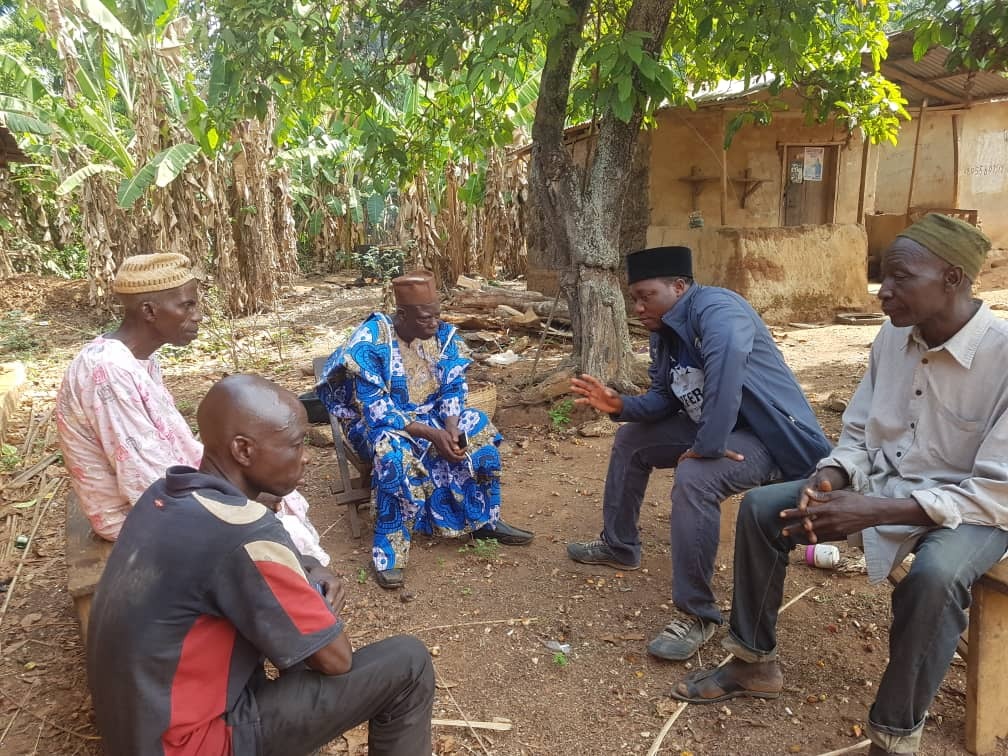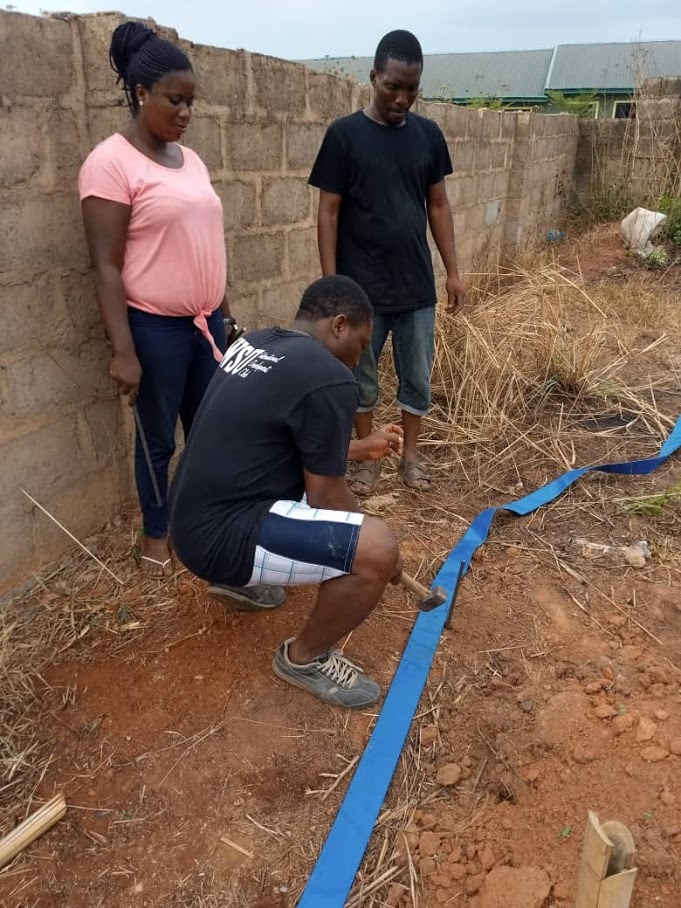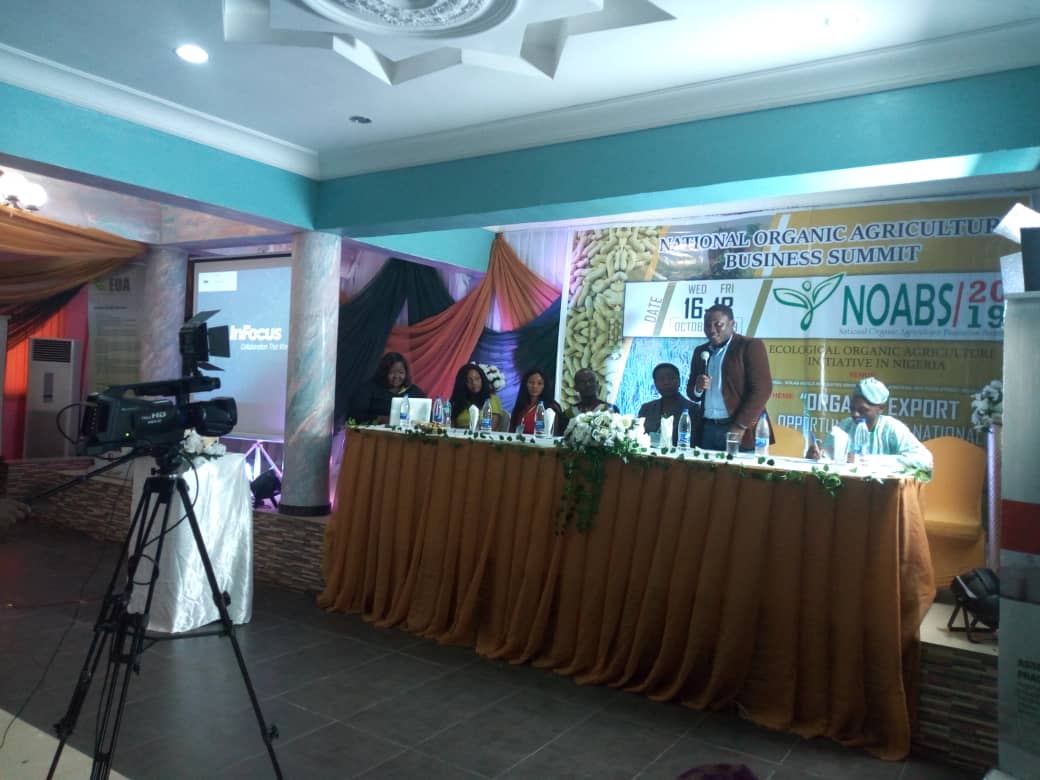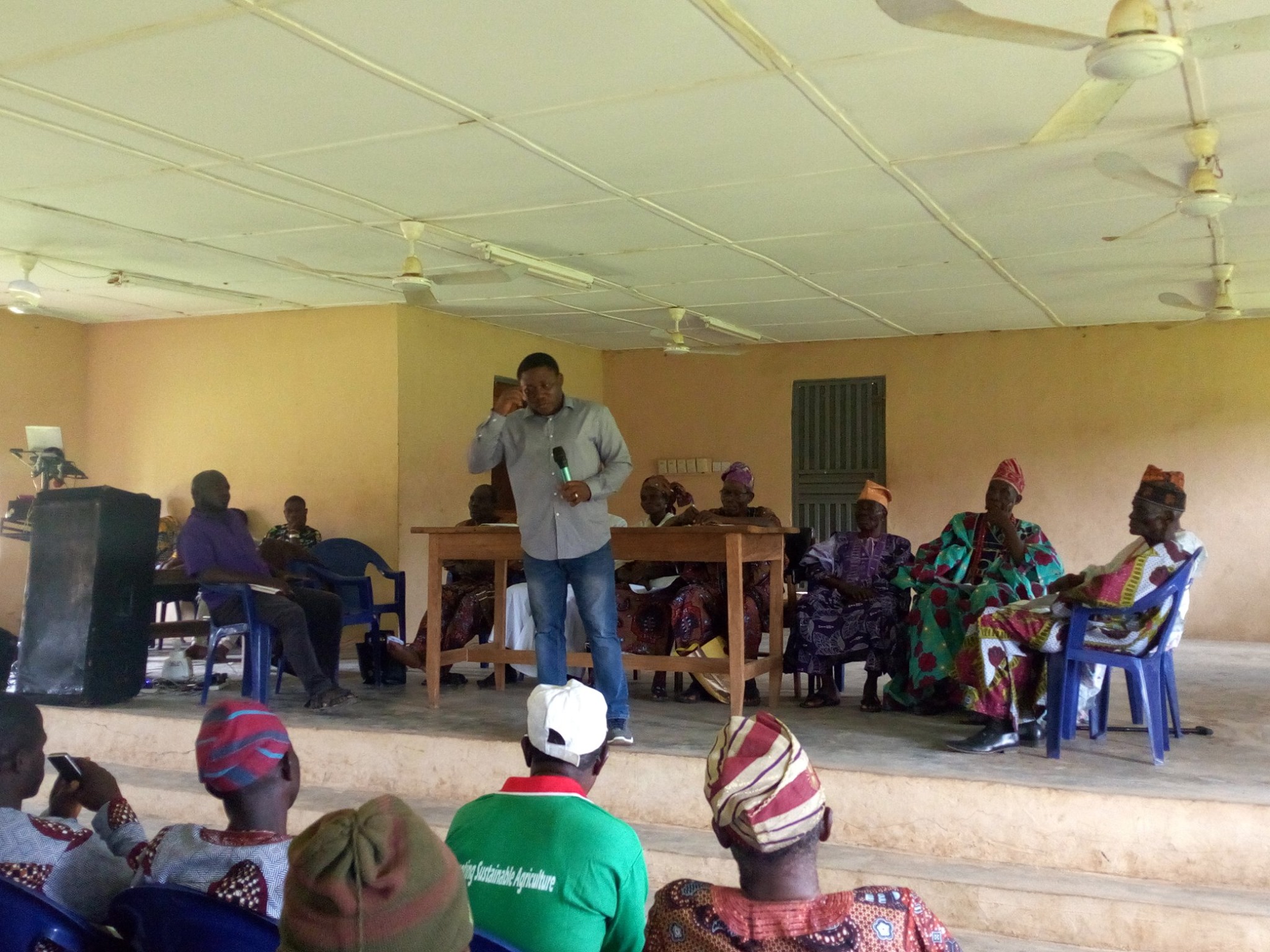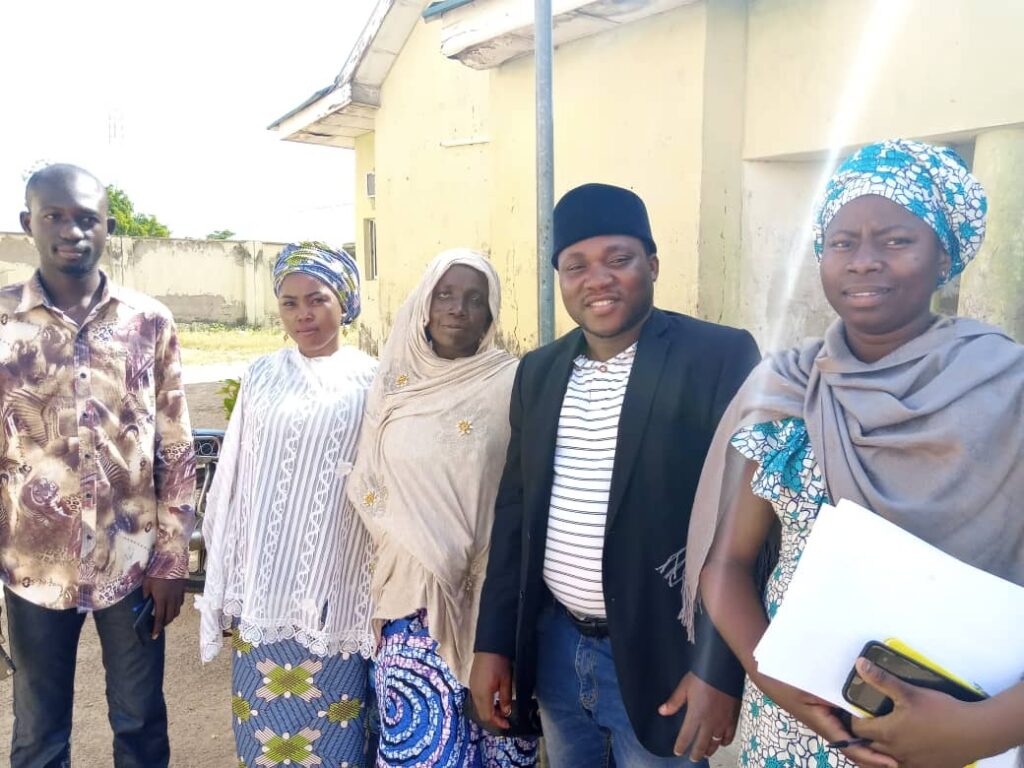March 5, 2021 – Cornelius Adewale founded Farmwella to help reduce poverty in his native Africa by empowering and supporting the next generation of farmers. The organization is based on an investment model that matches sponsors with farmers to make sustainable farming attractive and profitable. Investors provide financing for farmers to implement sustainable agricultural practices and get profits in return. Farmers receive access to all the support services they need to implement sustainable agricultural practices.
Cornelius got the seed for the idea when he started his own small organic farm in Nigeria after receiving his undergraduate degree in Agricultural Economics at Obafemi Awolowo University. He grew vegetables that Nigerians eat every day, such as okra, amaranth, tomatoes, and peppers. Within six months he was farming about one acre, and within two years he had five acres of land. So, he knew that education made success possible and he was troubled by the fact that his neighbors were living in poverty because they did not have the same knowledge.
“I would see farmers growing the same crop over and over, things like cassava and corn that their grandparents grew,” Cornelius explains. “But that is not necessarily the most profitable crops they could be growing.” He also saw that knowledge on sustainable farming practices such as building soil health was not getting to farmers. “There is no understanding of farming as a business and it is difficult to improve what you don’t know. Farmers don’t see university research as a resource and the institutions don’t see their job as improving the life of farmers.”
That’s when he started thinking about ways to extend his knowledge to help struggling farmers become both ecologically and economically sustainable. The first step was to continue his own education. He was accepted to the masters program at Washington State University. With mentor Lynne Carpenter-Boggs and others, Cornelius developed OFoot, an Internet-based tool to help organic farmers mitigate the environmental impacts of their farms and estimate the impacts of organic farming methods on soil organic matter and greenhouse gases over time.
April Jones Thatcher of April Joy Farm jumped at the opportunity to participate in the project. Located near Ridgefield, Washington, her 24-acre diversified farm is 100% certified organic. Working with Cornelius and the team at WSU, April was able to accurately measure the carbon footprint of her farm and create a science-based plan for reducing that footprint and building soil health.
“Keeping good data is fundamental,” says April. “Research is a risk reduction strategy for farmers. I can’t possibly do all the replications on my farm or take the risk.” Armed with the information she got from OFoot, April learned how to adapt her management decisions for equipment and tillage, and leverage her limited resources to get the most bang for her buck.
Cornelius went on to earn his PhD in Natural Resources and Environmental Science at WSU. Around that time, he received a $100,000 grant from the Bullitt Foundation to start what metamorphosed into Farmwella. The program matches a farmer with a sponsor who provides the financial resources to lease land and build the farm infrastructure. Farmwella oversees the implementation, monitoring the farmer’s progress daily through the app and video conferencing. “We give farmers everything they need,” says Cornelius. “All they need to bring is their hard work and integrity.”
The concept is aimed at unleashing the value of the land so that it becomes an investable asset. “It’s an investment in people but the sponsors make back their money,” explains Cornelius. “It’s more sustainable than relying on a donation model.”
April comments on the community-building aspect of the program. “These farms create community among neighbors and provide a place to learn and share. When others can see the success, it makes the research and science tangible in ways it wasn’t before.”
“Working with Cornelius is an incredible example of how innovation supported by data-driven decision-making is a win-win,” April adds. “When farmers and researchers form strong partnerships, the impact ripples beyond a single project. All these years after that first OFoot project, we continue to support and inform each other’s work. He inspires me and I encourage him. Ours is a partnership of mutual reciprocity. It’s how we are working to move the organic farming community and widespread adoption of organic farming practices forward.”
In closing, Cornelius says it’s important to not see farming as a competition with others but rather a competition with yourself—with sustainability at the core. “You have to see it not as a destination but as a journey and how you can improve over time. I’ve never met a farmer who said I don’t want my farm to be sustainable—for our children and future generations. The question is, are we directing that energy on the right path?”
Check out April’s “5 Great Reasons to Create a Soil Health Map for Your Diversified Farm”.



